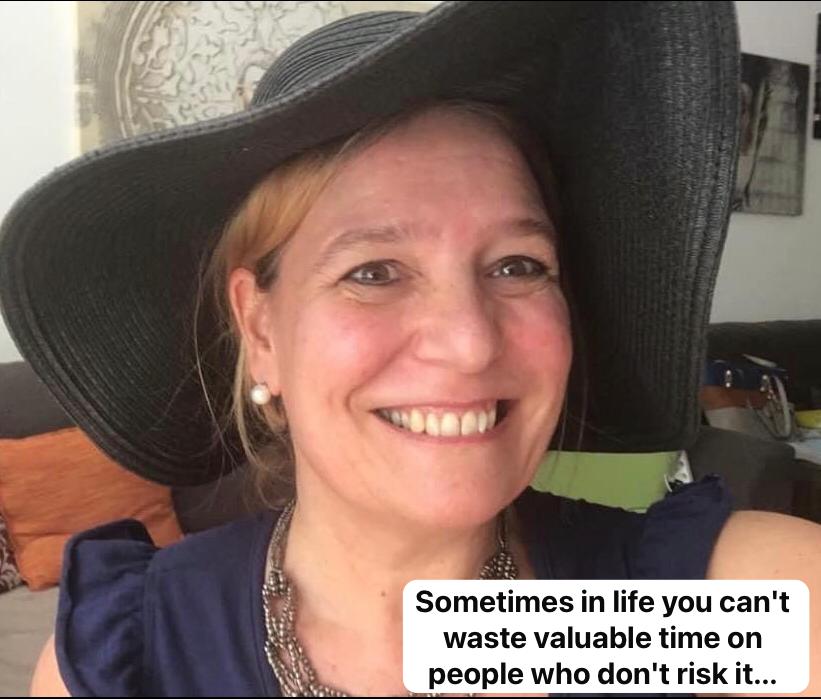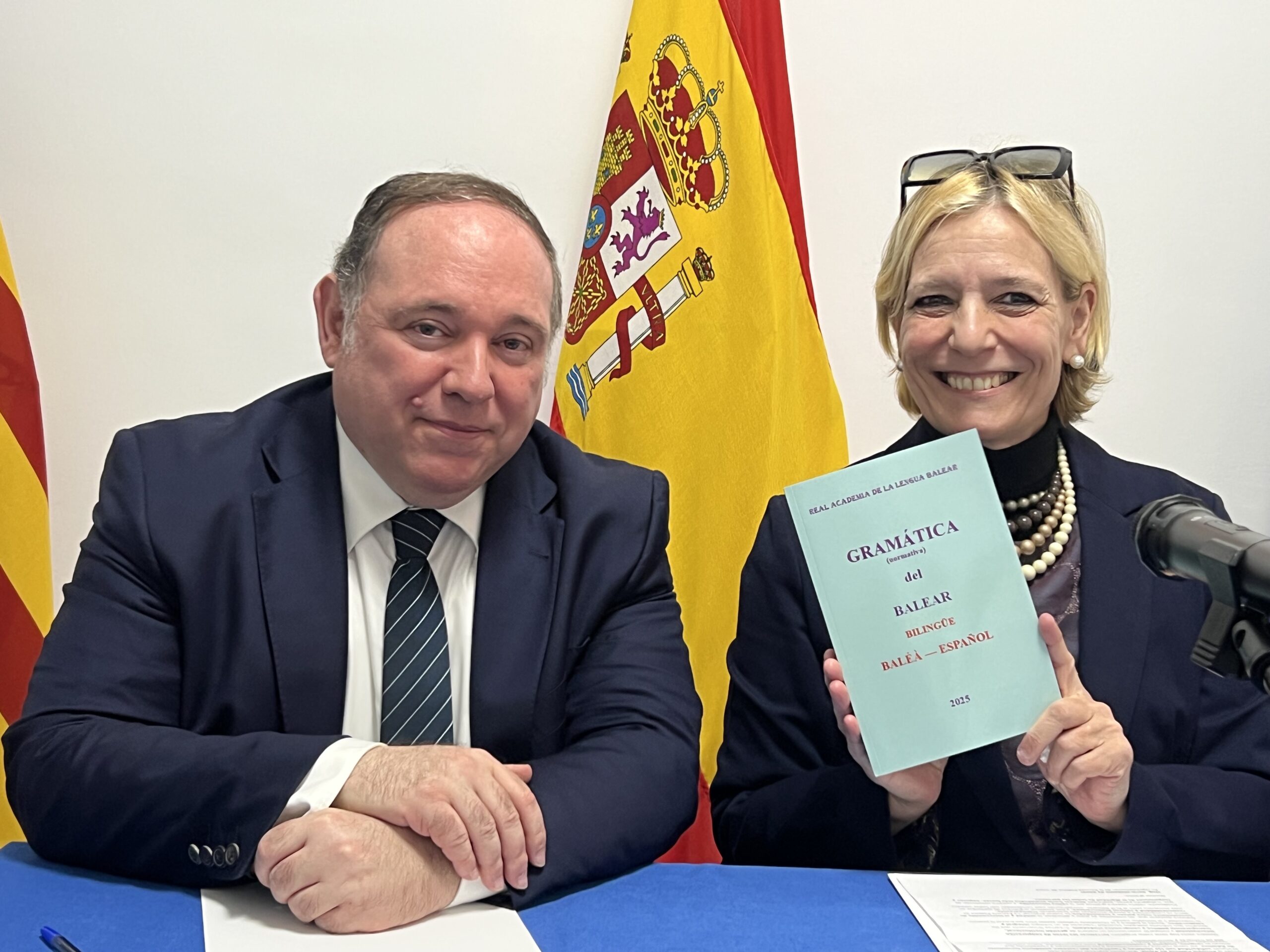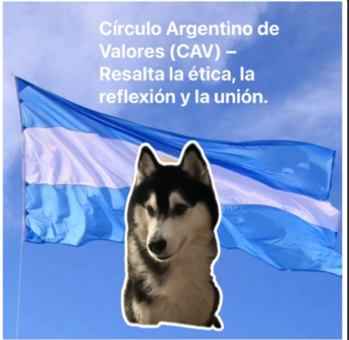
«You only live once. But if you do it right, once is enough.»
By Karin Hiebaum de Bauer
You only live once and the ideal is to do the best we can, I know that we are not perfect nor do we have to have perfect lives, that is very far from reality, I think no life is hehehe, we are always in search of something, solving something, some unsatisfied, and others grateful for what they have, so it is not what they have really expected.
There are many scenarios, but the really important thing is if we are happy with all that. As I have already mentioned on other occasions, people confuse being happy with having everything they want, but for me happiness lies in being happy with what you have, what you could have is just a fantasy, it is not a reality, the moment is now, not tomorrow or the day after.
On the other hand, being happy does not always mean being happy and never going through bad times, because life is not linear, it has ups and downs, happiness is something that we decide, it is in our hands to be the happiest people in this world or to be the most unhappy and ungrateful.
You decide which one you want to be.!! 😉
The world correctly says that we have only one life, but it is wrong to propose the way in which we should live it.
Todd Houston Subscription
- Recommended Bible reading: Psalms 39:4-5
Introduction
I. This is a phrase that has a true meaning but that is applied incorrectly.
II. We only have a physical life, so the way we live it is vital.
III. The Lord and the world use this true statement in two completely different ways, and the destiny of our soul depends on the way we apply it.
Exhibition
I. This phrase is very popular among young people.
A. This phrase is often used on social media to validate exciting events or to excuse irresponsible behavior.
B. It is a «phrase that gives priority to action, and often to impulsivity, over contemplation in the search for life experiences.»
C. This phrase «expresses the approach that the present moment must be made the most of without regard for the future, and this phrase is often used to excuse impulsive or reckless behavior.»
II. This phrase is closely related to Latin: Carpe Diem.
A. This second sentence means: «live or take advantage of the moment.»
B. This is a philosophy of life that proposes: «Enjoy life while you can do it.»
C. This phrase is based on a hedonistic philosophy of life.
III. The biblical ideal.
A. The Bible also indicates that we only live once (Genesis 3:19; Psalms 39:4-5; Job 9:25; 14:1; James 4:13-15).
B. It also indicates that time should be used (Ephesians 5:16).
C. The difference lies in the interpretation of «taking advantage of time.»
D. The world says that, since you live only once, then you must live without limits and freely.
E. The Lord says: «You live only once, so live for Me» (cf. Joshua 24:14-15; Ecclesiastes 12:13-14; John 9:4; Ephesians 5:11,15-17; Romans 13:11-14).
Conclusion
I. It is correct what the world says that we only live once.
II. But the world is wrong in proposing the way in which that one life should be realized.
III. When our life comes to an end, we will all present ourselves before the court of Christ to give an account of our works (Romans 2:4-10; 14:10; 2 Corinthians 5:10).

Un mal consejo: Sólo se vive una vez
por Karin Silvina Hiebaum
«Sólo se vive una vez. Pero si lo haces bien, una vez es suficiente».
Por Karin Hiebaum de Bauer
Solo se vive una vez y lo ideal es hacerlo lo mejor que podamos, se que no somos perfectos ni tenemos que tener vidas perfectas, eso está muy lejos de la realidad, creo que ninguna vida lo es jejeje, siempre estamos en busca de algo, solucionando algo, algunos insatisfechos, y otros agradecidos por lo que tienen, por lo que no es lo que realmente han esperado.
Hay muchos escenarios, pero lo realmente importante es si somos felices con todo eso. Como ya he comentado en otras ocasiones, la gente confunde ser feliz con tener todo lo que quiere, pero para mí la felicidad está en ser feliz con lo que tienes, lo que podrías tener es sólo una fantasía, no es una realidad, el momento es ahora, no mañana ni pasado.
Por otro lado, ser feliz no siempre significa ser feliz y no pasar nunca por malos momentos, porque la vida no es lineal, tiene altibajos, la felicidad es algo que decidimos nosotros, está en nuestras manos ser las personas más felices de este mundo o ser los más infelices e ingratos.
Tú decides cuál quieres ser!!! 😉 .
El mundo dice correctamente que solo tenemos una vida, pero se equivoca al proponer la forma en que debemos vivirla.
Todd Houston Suscripción
Lectura bíblica recomendada: Salmos 39:4-5
Introducción
I. Esta es una frase que tiene un significado verdadero pero que se aplica incorrectamente.
II. Sólo tenemos una vida física, por lo que la forma en que la vivimos es vital.
III. El Señor y el mundo utilizan esta afirmación verdadera de dos maneras completamente diferentes, y el destino de nuestra alma depende de la forma en que la apliquemos.
Exposición
I. Esta frase es muy popular entre los jóvenes.
A. Esta frase se utiliza a menudo en las redes sociales para validar eventos emocionantes o para excusar el comportamiento irresponsable.
B. Es una «frase que da prioridad a la acción, y a menudo a la impulsividad, sobre la contemplación en la búsqueda de experiencias vitales.»
C. Esta frase «expresa el planteamiento de que hay que aprovechar al máximo el momento presente sin tener en cuenta el futuro, y esta frase se utiliza a menudo para excusar el comportamiento impulsivo o imprudente.»
II. Esta frase está estrechamente relacionada con el latín: Carpe Diem.
A. Esta segunda frase significa: «vivir o aprovechar el momento».
B. Se trata de una filosofía de vida que propone: «Disfruta de la vida mientras puedas hacerlo».
C. Esta frase se basa en una filosofía de vida hedonista.
III. El ideal bíblico.
A. La Biblia también indica que sólo vivimos una vez (Génesis 3:19; Salmos 39:4-5; Job 9:25; 14:1; Santiago 4:13-15).
B. También indica que se debe aprovechar el tiempo (Efesios 5:16).
C. La diferencia radica en la interpretación de «aprovechar el tiempo».
D. El mundo dice que, como sólo se vive una vez, entonces hay que vivir sin límites y libremente.
E. El Señor dice: «Vives una sola vez, así que vive para Mí» (cf. Josué 24:14-15; Eclesiastés 12:13-14; Juan 9:4; Efesios 5:11,15-17)
C. La diferencia radica en la interpretación de «aprovechar el tiempo».
D. El mundo dice que, como sólo se vive una vez, entonces hay que vivir sin límites y libremente.
E. El Señor dice: «Vives una sola vez, así que vive para Mí» (cf. Josué 24:14-15; Eclesiastés 12:13-14; Juan 9:4; Efesios 5:11,15-17; Romanos 13:11-14).
Conclusión
I. Es correcto lo que el mundo dice que solo vivimos una vez.
II. Pero el mundo se equivoca al proponer la forma en que debe realizarse esa única vida.
III. Cuando nuestra vida llegue a su fin, todos nos presentaremos ante el tribunal de Cristo para dar cuenta de nuestras obras (Romanos 2:4-10; 14:10; 2 Corintios 5:10).




